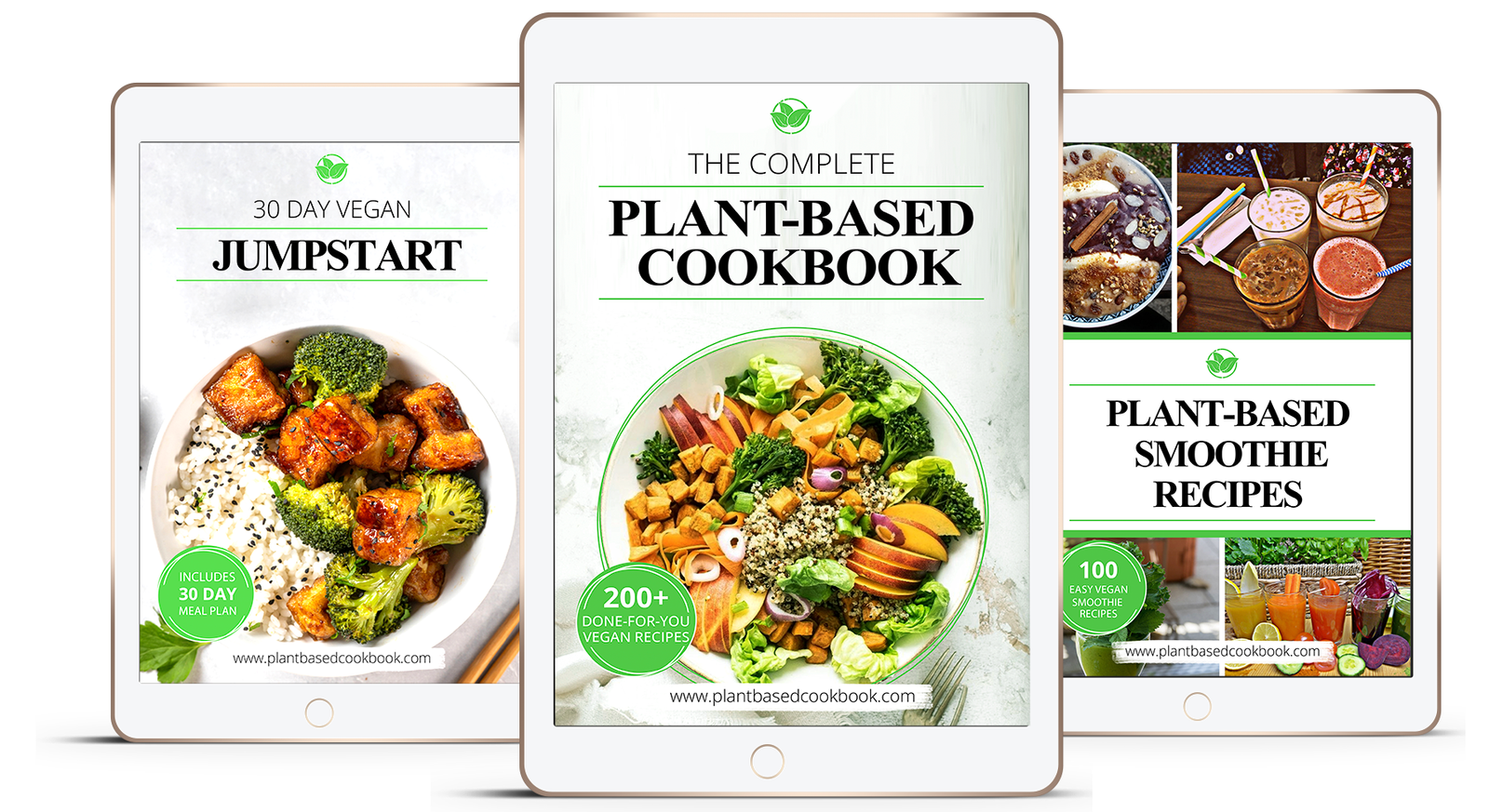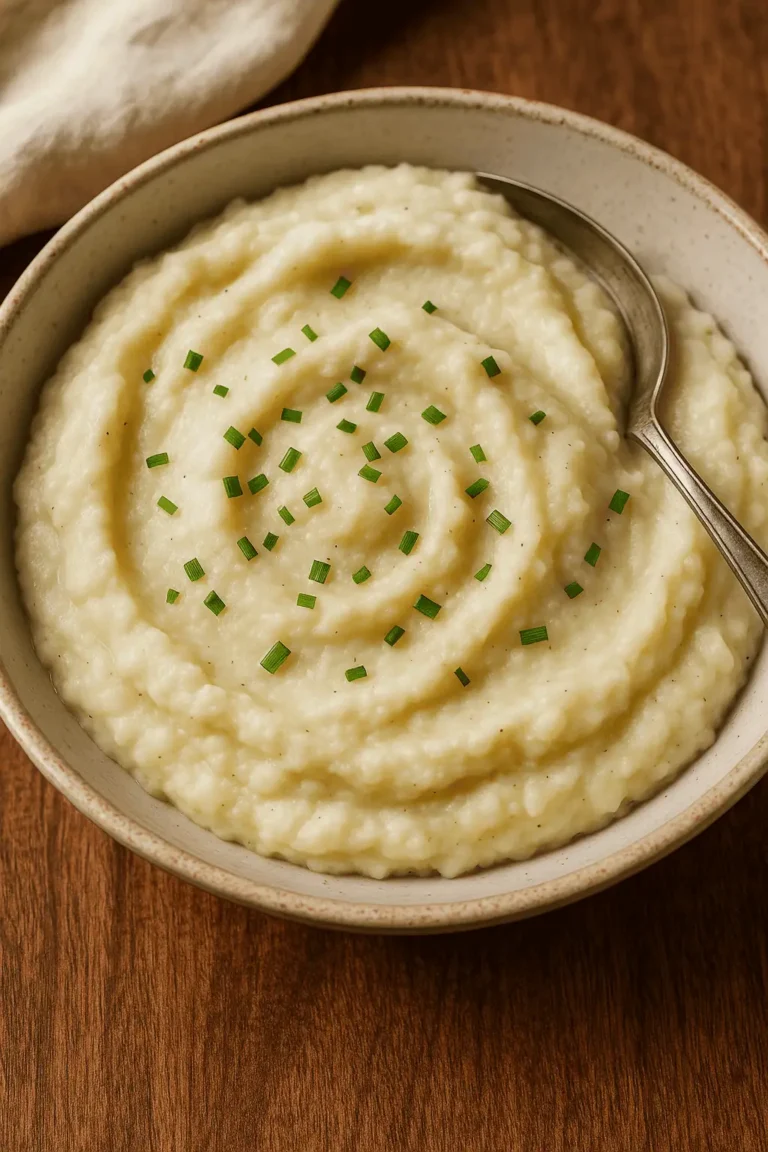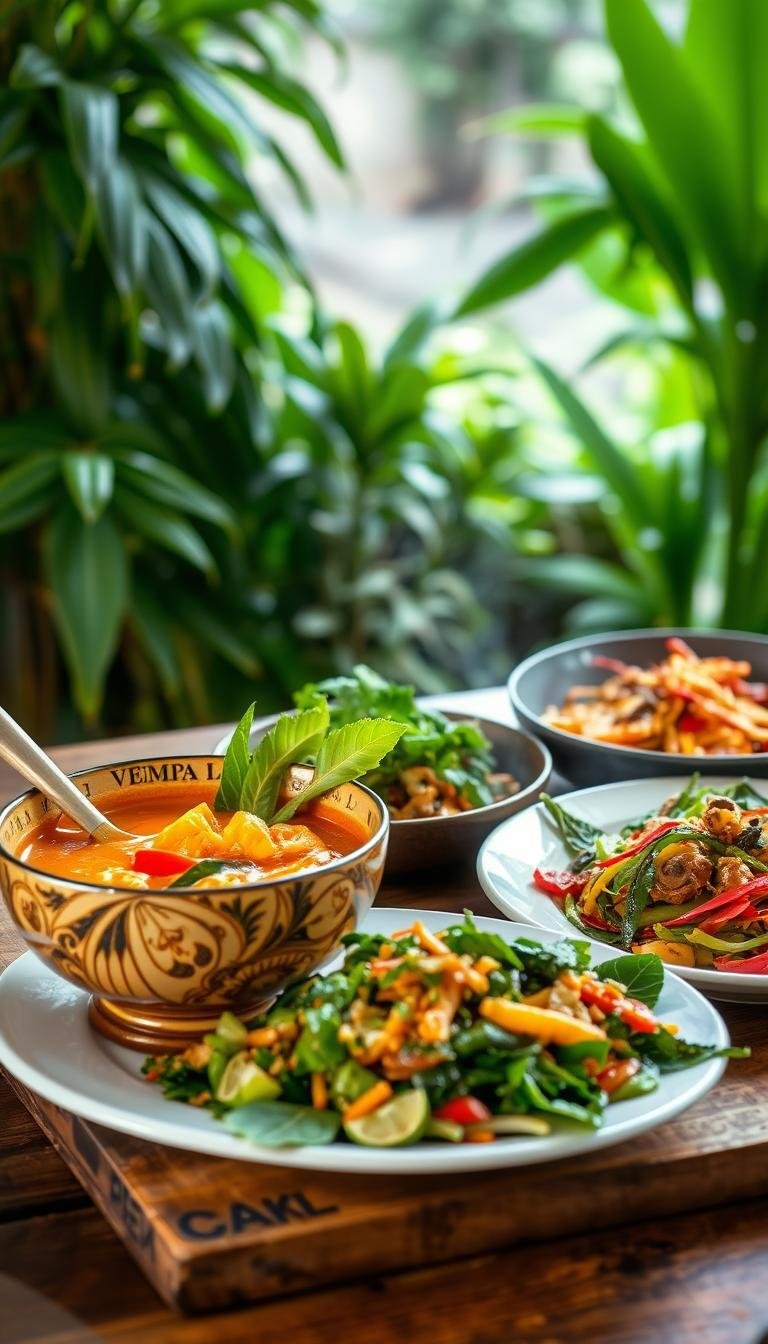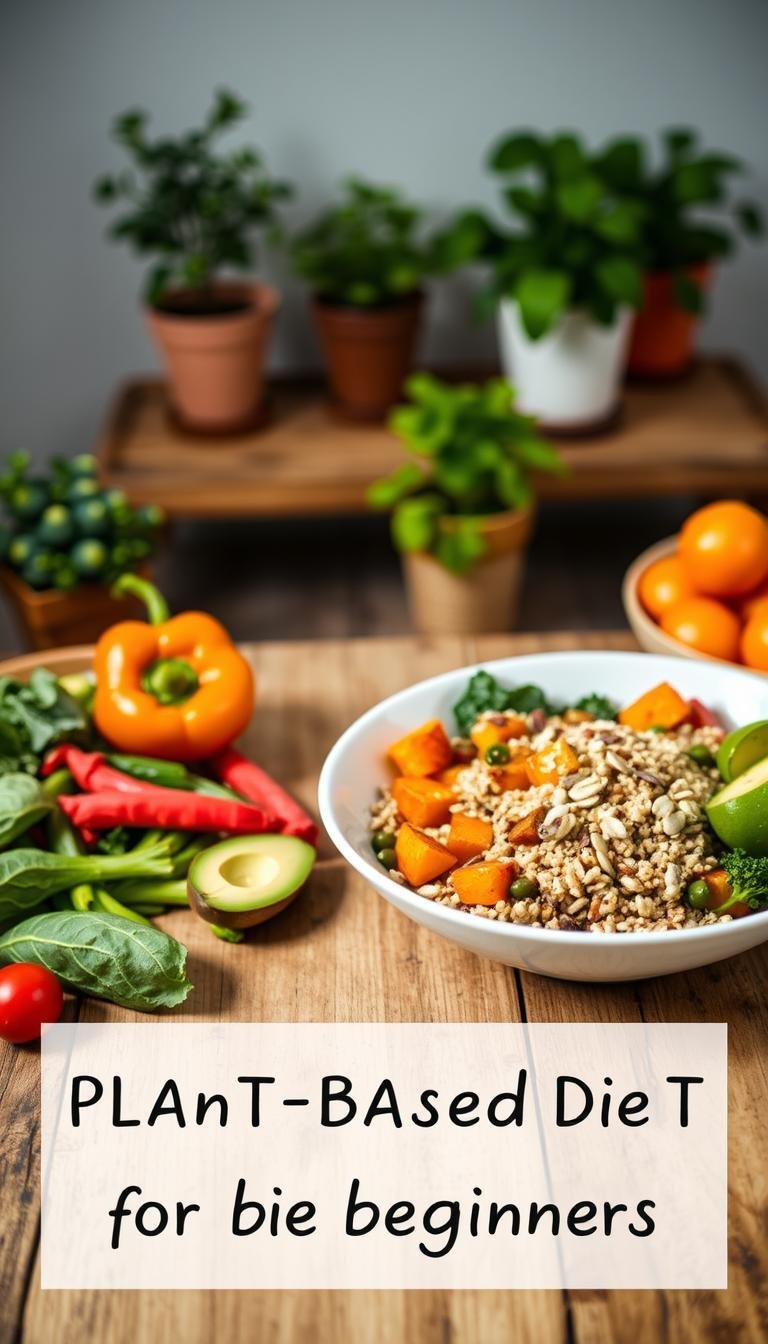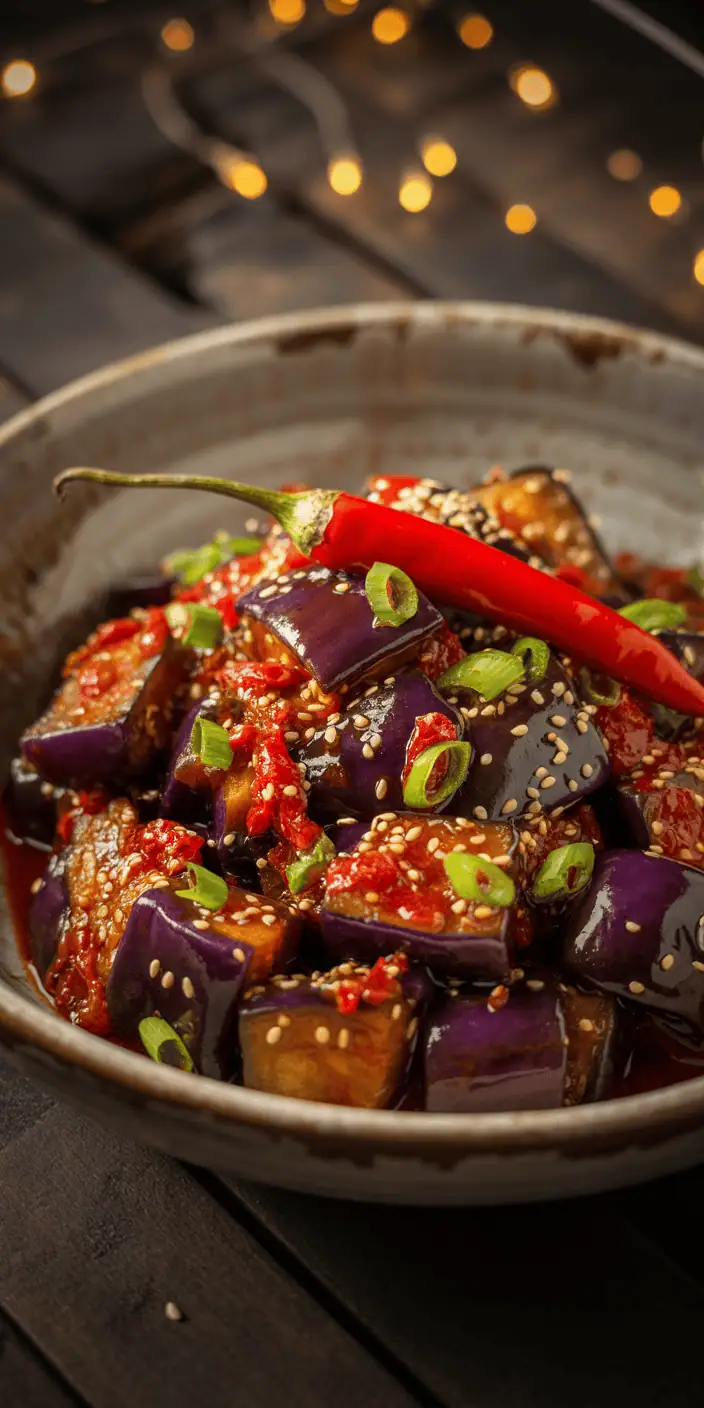(Hey! Some links in this post may be affiliate links — meaning I may earn a small commission if you buy through them, at no extra cost to you. As an Amazon Associate, I earn from qualifying purchases. I only share products I genuinely love and think you’ll find useful too. Read the full disclosure here).
Eating a plant-based diet can boost your health and wellbeing. It doesn’t have to cost a lot. By using plant-based recipes, you can save money and stay healthy. Plus, it’s better for the planet.
Starting a plant-based diet can be easy and affordable. You can plan meals and buy seasonal produce to save money. Choosing plant-based options helps you control your health and budget.
Contents
- 1 Understanding the Plant-Based Diet
- 2 Budgeting for Your Plant-Based Lifestyle
- 3 Finding Affordable Plant-Based Ingredients
- 4 Meal Planning for Cost Efficiency
- 5 Cooking at Home vs. Eating Out
- 6 Smart Shopping Tips for Plant-Based Foods
- 7 Incorporating Plant-Based Recipes into Your Diet
- 8 Creative Ways to Use Leftovers
- 9 Nutritional Considerations on a Plant-Based Diet
- 10 Success Stories: Inspiring Examples
Understanding the Plant-Based Diet
A plant-based diet focuses on foods from plants like fruits, vegetables, grains, and legumes. It’s great for improving health and can lower the risk of diseases like heart disease and diabetes. A well-planned plant-based diet can give you all the nutrients you need, fitting your personal preferences.
There are different types of plant-based diets, like vegan diet and vegetarian diet. Vegans don’t eat animal products, including meat, dairy, and eggs. Vegetarians might eat some animal products, like dairy and eggs. Both diets are good for health and help the environment.

- Reduced risk of heart disease and stroke
- Lower risk of type 2 diabetes
- Improved weight management
- Lower risk of certain types of cancer
Eating more plant-based foods can make you healthier and reduce your environmental impact. You can follow a vegan diet, a vegetarian diet, or just add more plant-based meals. The benefits are big, no matter your choice.
Budgeting for Your Plant-Based Lifestyle
Starting a plant-based lifestyle can be easy on your wallet. First, learn about the benefits of plant based diet. It’s good for your health and your finances. To begin, setting a budget is key.
Creating a budget helps you stick to your plant-based diet. Here are some tips to help you:
- Track your expenses to find ways to save
- Plan meals with seasonal produce to cut costs
- Buy in bulk and cook at home to save on packaging

Follow these tips and watch your spending. This way, you can enjoy the benefits of plant based diet without overspending. Remember, starting a plant-based diet is a journey. Take it one step at a time.
Finding Affordable Plant-Based Ingredients
When you start plant based eating, cost can be a worry. But, with some planning and creativity, you can find cheap options. You can make tasty, healthy meals without spending a lot.
Start by visiting your local farmers’ market. You’ll find fresh, seasonal produce at good prices. Plus, you support local farmers and the community. To save money, buy in bulk, shop at discount stores, and plan meals around what’s in season.
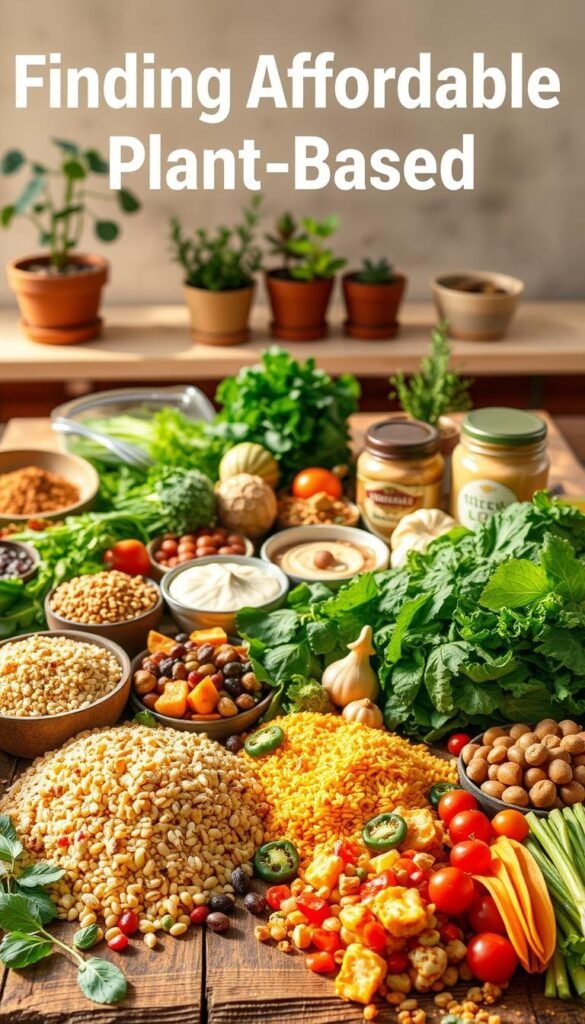
- Buy in bulk: Items like beans, grains, and nuts are cheaper in bulk.
- Shop at discount stores: These stores often have plant-based ingredients at lower prices.
- Plan your meals: Use what’s in season to make a plant based meal plan that’s both affordable and tasty.
By using these tips and choosing wisely, you can enjoy plant based eating without spending too much. With a bit of creativity and planning, you can make a plant based meal plan that’s both healthy and budget-friendly.
Meal Planning for Cost Efficiency
Living a plant based lifestyle can save money if done right. Meal planning is a big part of keeping costs down. It saves time and money and ensures you eat well.
Planning meals helps avoid food waste and uses ingredients wisely. It’s great for those following a plant based lifestyle. It helps manage food costs better.
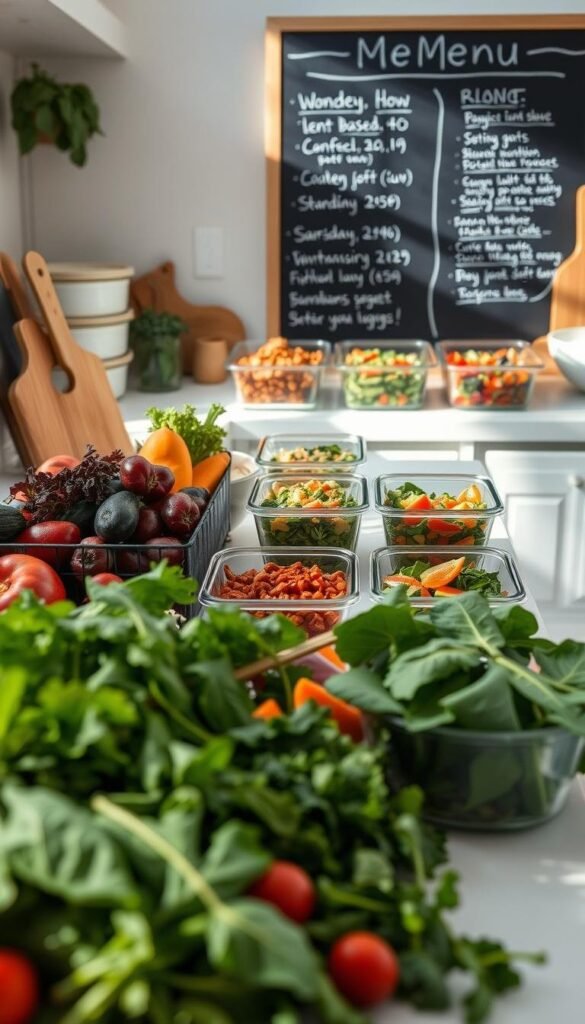
- Creating a weekly meal plan to stay organized
- Shopping for seasonal produce to reduce costs
- Cooking meals in bulk to save time and money
By planning meals ahead, you can eat healthy and save money. It’s easy to do and keeps your diet balanced.
Cooking at Home vs. Eating Out
Choosing between cooking at home or eating out greatly affects your budget on a vegan diet. Cooking at home lets you control what you eat and how much. This makes it easier to follow your plant based recipes and stay within your budget.
Eating out can be pricey, even more so for vegan options. But, with some planning, you can find tasty and affordable vegan meals.
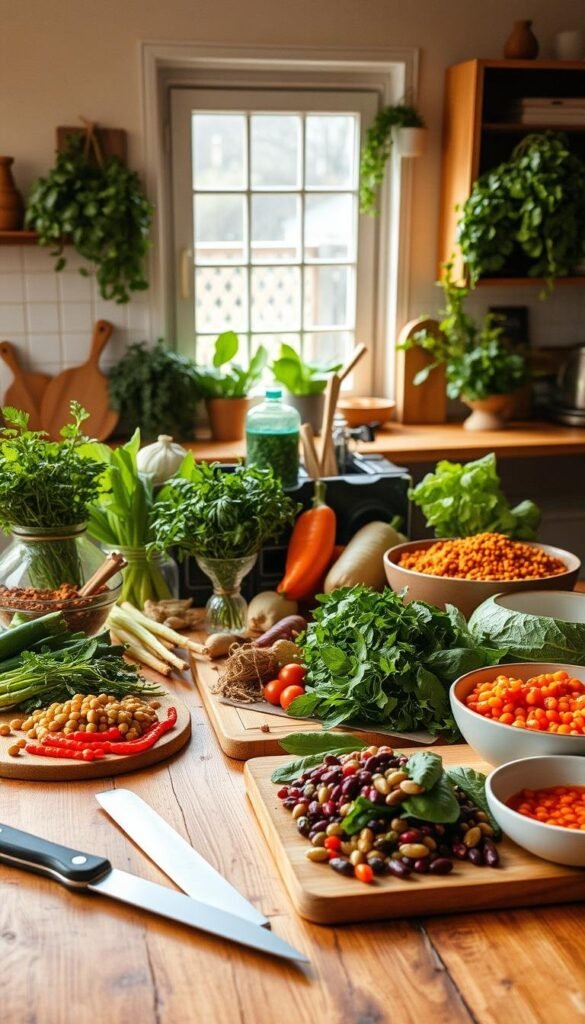
- Look for restaurants that offer plant based recipes and vegan options
- Choose restaurants that offer affordable pricing and portion sizes
- Avoid restaurants that charge extra for specialty ingredients or dishes
By cooking at home and making smart choices when eating out, you can enjoy a healthy vegan diet without spending too much. A bit of creativity and planning can make plant based recipes a big part of your diet. This way, you can enjoy the many benefits of a vegan lifestyle.
Smart Shopping Tips for Plant-Based Foods
Choosing a vegetarian diet can boost your health and wellbeing. It also helps save money on food. By smart shopping and meal planning, you can enjoy a plant-based diet without spending too much.
For smart shopping, consider buying in bulk, visiting discount stores, and checking out farmers’ markets. Buying in bulk saves money on items like beans, grains, and nuts. Discount stores offer affordable prices on plant-based foods. Farmers’ markets provide fresh, local produce at good prices.
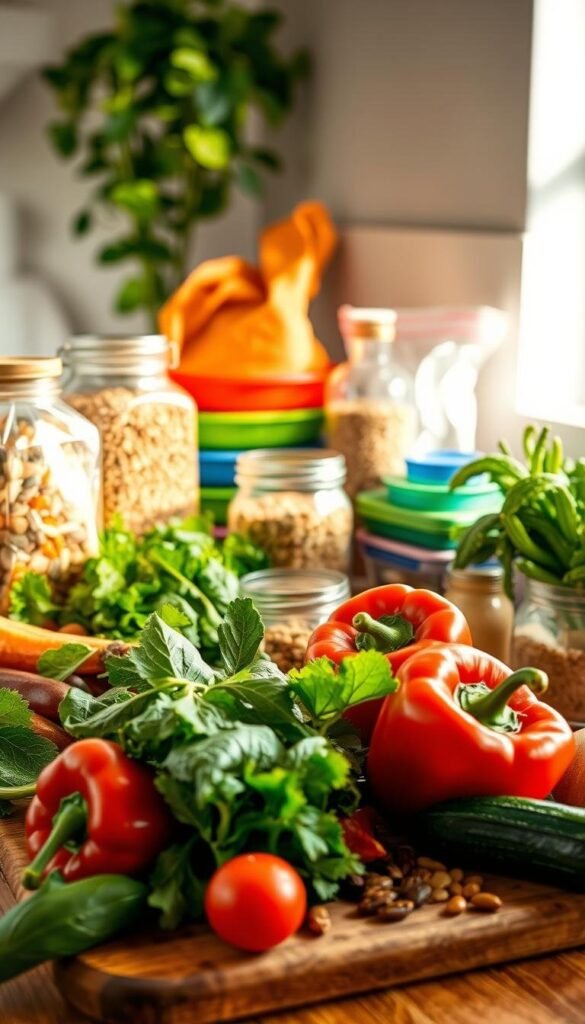
When shopping for plant-based foods, watch prices and look for savings. Here are some tips:
- Plan meals around seasonal produce for better prices.
- Choose frozen or canned options for out-of-season produce.
- Use coupons or discount codes for plant-based staples.
By using these smart shopping tips, you can enjoy the benefits of plant based diet without overspending. With some planning and creativity, eating a healthy, balanced plant-based diet on a budget is possible.
Incorporating Plant-Based Recipes into Your Diet
Starting a plant based diet is easier than you think. It’s all about finding tasty, easy recipes. Plant-based eating boosts your health and helps the planet. It lowers the risk of heart disease and diabetes.
Begin by trying new ingredients and recipes. Look online or check out cookbooks at your library. Stir-fries, salads, and soups are great places to start. You can even make vegan versions of your favorite foods, like veggie burgers and mac and cheese.
- Start with simple recipes and gradually experiment with new ingredients and cooking techniques
- Shop for ingredients that are in season to save money and reduce your environmental impact
- Cook in bulk to save time and money, and to reduce food waste
By following these tips, you can enjoy the benefits of plant-based eating. It’s a simple way to improve your health and wellbeing.
Creative Ways to Use Leftovers
Living a plant based lifestyle doesn’t mean you have to give up taste or variety. One smart way to stick to a plant based meal plan and save money is to get creative with leftovers. By thinking creatively, you can turn yesterday’s dinner into tomorrow’s lunch. This reduces waste and saves you time.
Some ideas for using leftovers include making a hearty soup from roasted veggies or a fresh salad with leftover grains. You can also whip up a tasty stir-fry or add veggies to a soup for more flavor.
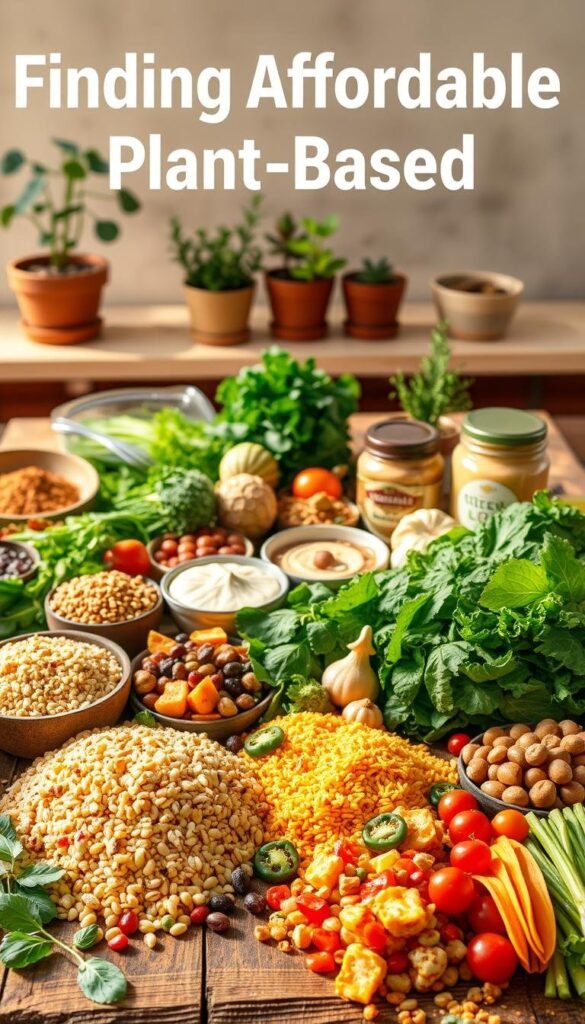
Transforming Leftovers into New Meals
Transforming leftovers into new meals is limitless. Make a list of your favorite plant based dishes and think of ways to reuse ingredients. For instance, leftover lentils can make a delicious curry, or add veggies to pasta for extra taste.
Storage Tips for Budget Efficiency
To maximize your leftovers, proper storage is key. Invest in airtight containers or zip-top bags to keep food fresh longer. Label and date your containers so you know what’s in the fridge and how long it’s been there. These simple tips help you enjoy a plant based lifestyle while saving money and cutting down on waste.
Nutritional Considerations on a Plant-Based Diet
Following a plant based diet means you need to think about nutrition. It’s important to get all the nutrients your body needs. A good plant based diet can make you healthier, but you must pay attention to some nutrients found in animal products.
To keep your diet balanced, eat whole, unprocessed foods. This includes fruits, veggies, whole grains, and legumes. Try different plant based recipes to make your diet fun and nutritious.
Make sure to get enough protein, iron, calcium, and vitamin B12. You can find these in plant based foods like beans, lentils, tofu, tempeh, and fortified plant-based milk. Also, talk to a healthcare expert or a dietitian to see if you need supplements for your plant based diet.
By paying attention to these nutrients and trying various plant based recipes, you can do well on a plant based diet. You’ll enjoy the many health benefits it offers.
Success Stories: Inspiring Examples
Eating a nutritious plant-based diet doesn’t have to be expensive. Lisa and Michael have been on a vegan diet for over a decade. They do it all on a modest budget. “It’s all about planning, patience, and prioritizing whole foods,” says Lisa.
They’ve found many ways to enjoy plant-based meals without spending too much. One key tip is to buy seasonal produce, which is often cheaper. “We love visiting our local farmer’s market and stocking up on fresh fruits and veggies that are in season,” Michael explains.
They also save money by buying in bulk. This includes grains, beans, and nuts. And when they eat out, they choose vegetarian or vegan-friendly restaurants. These places offer plant-based options at good prices.
By sharing their budget-friendly vegan lifestyle, Lisa and Michael want to inspire others. “It’s completely possible to eat healthy and delicious plant-based meals on a tight budget,” Lisa affirms. “With a little creativity and smart shopping, anyone can make it work.”


